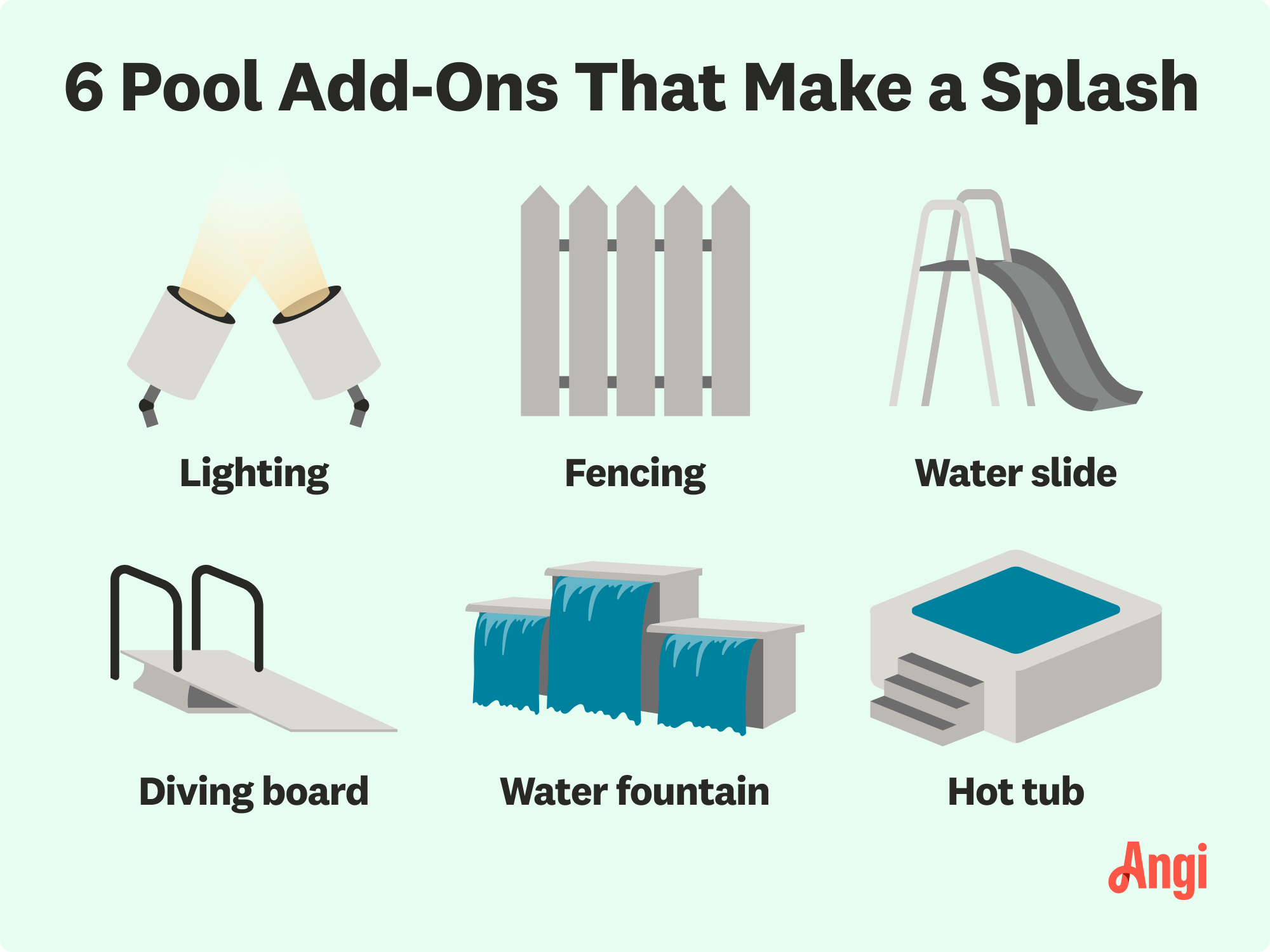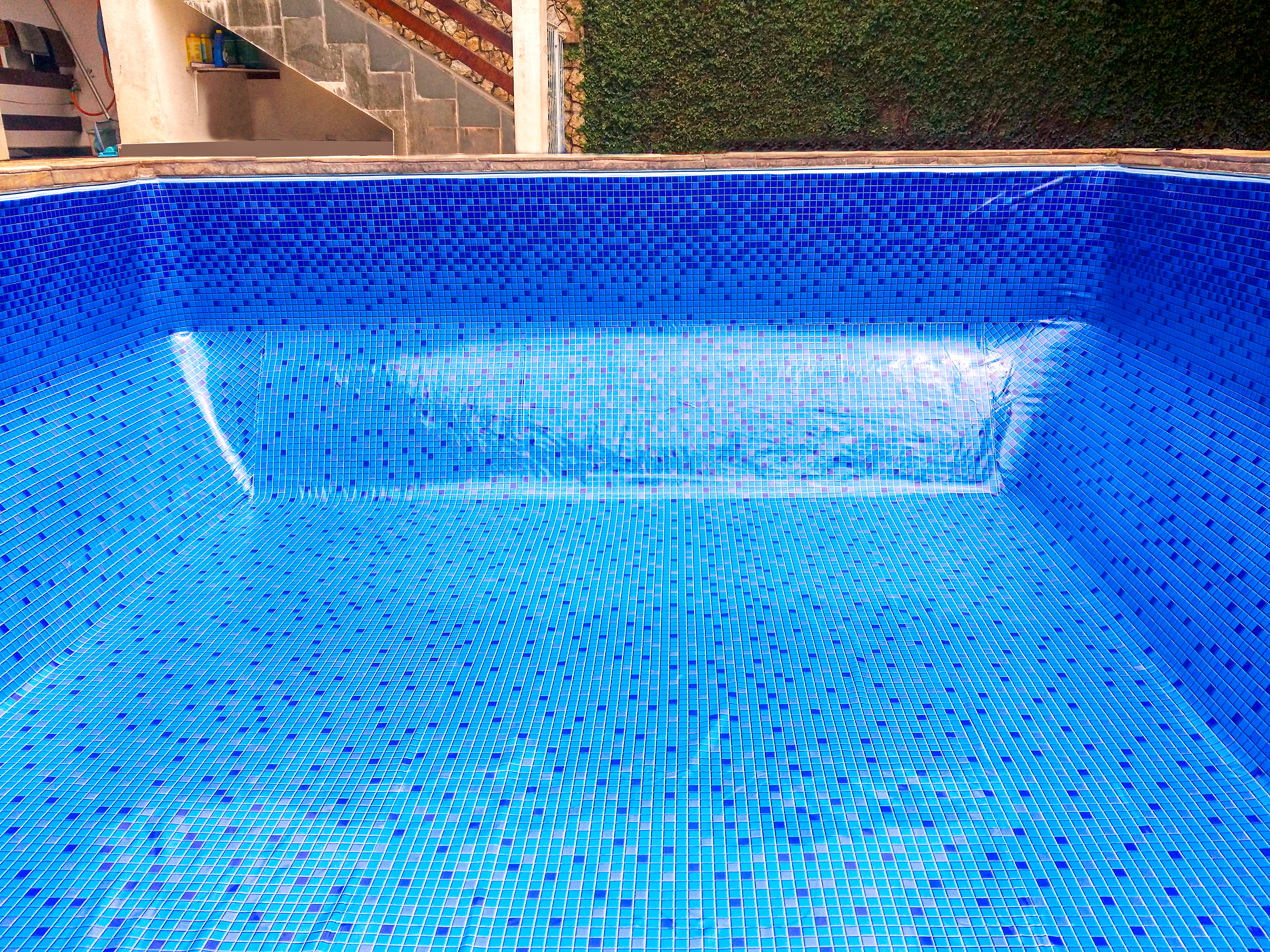
Pool tile costs can vary widely depending on the size of your pool and the type of tile. Here’s how much it costs to retile a pool and other projects to think about.
Pool construction and installation costs depend on your project and location. Check with a local pro for your specific job.
Pool remodel costs in Denver are significantly higher than the national average, so carefully plan your project to stay within your budget.
Because the swimming season is short in Denver, consider adding a pool heater or hot tub.
Doing a pool remodel on a luxury property in Denver can help increase the home’s value.
You might like your pool, but perhaps you don’t love it yet. A pool remodel is a chance for you to dial in every detail to your liking. Pool remodel costs in Denver range between $6,460 and $29,000, with an average of $16,477. These costs are higher than the national average, likely because most pools in Denver are on luxury properties. Find out what goes into estimating pool remodel costs to kick-start your project.
Here are the major pool remodel cost factors to look into when making plans and a budget.
Denver’s average yard size is 6,000 square feet, which gives most people ample space for a pool. Check your pool size against the chart below to get a sense of how much your remodel will cost. Keep in mind that these figures represent the national average, so your costs will be higher.
| Pool Dimensions (Feet) | Average Cost Range |
|---|---|
| 6x10 | $200–$3,900 |
| 10x20 | $600–$13,000 |
| 12x24 | $860–$18,900 |
| 12x28 | $1,000–$22,000 |
| 16x32 | $1,500–$33,300 |
| 20x40 | $2,400–$52,000 |
Pool conversions can be subtle, like switching to a saltwater pool, or a completely dramatic transformation into a natural pool. In Denver, all conversion types are possible, especially if you have a larger yard to accommodate a natural pool or pond conversion. These remodels are the costliest types, but many homeowners find they’re well worth it to get the pool of their dreams.
| Pool Conversion | Average Cost Range |
|---|---|
| Saltwater | $500–$2,500 |
| Natural | $50,000–$175,000 |
| Pond | $40,000–$80,000 |
| Shallow to deep | $10,000–$50,000 |
| Deep to shallow | $4,000–$7,000 |

In Denver, where pools are most often found on luxury properties, the common remodel types are luxury-oriented. This includes projects like installing an integrated hot tub, eye-catching water features, and modern LED lighting.
And if you don’t have a pool heater, installing one is a great idea since the low temperatures in June and September are in the 50s. It’ll make swimming more comfortable at the beginning and end of the pool season, plus you might get a few extra weeks to splash around.
| Pool Remodeling Project or Addition | Average Cost |
|---|---|
| Hot tub | $2,000–$25,000 |
| Pool deck construction | $7,500 |
| Concrete patio construction | $10,500 |
| Pool landscaping | $200–$15,000 |
| Water features | $450–$1,900 |
| Lighting | $450–$1,700 each |
| Pool heater | $1,790–$4,170 each |
| Reshaping a vinyl pool | $30,000 |
| Reshaping a concrete pool | $60,000 |
| Water slide | $1,000–$15,000 |
| Diving board | $500–$1,000 |
The harsh winter in Denver means most pools are made of fiberglass or concrete. Resurfacing or tile replacement are the most common repairs or replacement jobs in the area. Pool repair costs range from $250 to $1,200 for services like leak detection and heater repair. Always prioritize these tasks before tackling projects to improve visual aesthetics.
| Pool Repair or Replacement | Average Cost |
|---|---|
| Vinyl liner replacement | $2,000 |
| Tile resurfacing | $2,000 |
| Ceramic tile replacement | $3,000 |
| Glass tile replacement | $3,500 |
| Deck resurfacing | $3,000 |
| Pump replacement | $700–$1,300 |
| Leak detection | $100–$500 |
| Skimmer replacement | $3,000 |
| Step repair or replacement | $4,500 |
| Heater repair | $160–$730 |
Here are all of the additional costs associated with hiring a pool remodeler in Denver, Colorado.
The labor costs for your pool remodeling job make up 45% of the total project because the job requires extensive working hours from your pool remodeler and their team. There are many tasks on the to-do list, from the initial pool design phase to the final finishing touches.
Many pool remodel projects require additional subcontractors like electricians, plumbers, excavators, and more. For example, you’ll need an electrician to install new pool lights or a pool heater. Plumbers will work on new water features and reroute existing plumbing for pool reshaping projects.
Your pool remodeler will need to secure construction and trade permits for the project. The latter includes electrical, plumbing, mechanical, and boiler permits. The process requires a site plan, boundary survey, drawings of the electrical and mechanical equipment, and a shoring plan, among other documents. Your remodeler will know which permits are required in Denver and how to obtain them, which is another plus to hiring a pro to do the job.
Plan for the 9.15% sales tax on your pool remodeling costs.
An in-ground pool can increase the home value of luxury properties in Denver, and a pool remodel that improves the condition of the pool and adds desired features can help. The new pool design should fit in seamlessly with the rest of the property, which might require you to remodel not just your pool but also the landscaping and patio areas.
However, if you have a pool in a traditional home and not in a luxury neighborhood, a pool remodel will not increase your home value as much. Prospective homebuyers may not see the pool as an asset, particularly since the pool season in Denver is short compared to sunnier, southern states. Keeping your existing in-ground pool in excellent condition is still a good idea because a poorly maintained pool can turn off interested parties.
The return on investment for a pool varies widely—from as little as 5% to as much as 56%—with most homeowners seeing a return of 7%. Several factors influence this value, including the pool’s size, type, condition, local climate, neighborhood, and market conditions.
Home is the most important place on earth, which is why Angi has helped more than 150 million homeowners transform their houses into homes they adore. To help homeowners with their next project, Angi provides readers with the most accurate cost data and upholds strict editorial standards. We survey real Angi customers about their project costs to develop the pricing data you see, so you can make the best decisions for you and your home. We pair this data with research from reputable sources, including the U.S. Bureau of Labor Statistics, academic journals, market studies, and interviews with industry experts—all to ensure our prices reflect real-world projects.
Want to help us improve our cost data? Send us a recent project quote to [email protected]. Quotes and personal information will not be shared publicly.
From average costs to expert advice, get all the answers you need to get your job done.

Pool tile costs can vary widely depending on the size of your pool and the type of tile. Here’s how much it costs to retile a pool and other projects to think about.

If you’ve been considering installing a new pool in the Buckeye State, this guide will help you understand inground pool costs in Columbus.

The cost of pool liner replacement in Columbus depends on the size and shape of your pool, as well as the liner material and type. Here’s how the costs break down.

Hiring the right pro to build your pool is critical for a successful project. Find out what questions to ask pool builders to find the right match.

Looking for the best types of pool enclosures to cut down on cleanings? Pool enclosures come in a wide range of prices, shapes, and materials fit to your style.

Dreaming of getting in those daily laps without tearing up your backyard? Here’s what to know about endless pool costs so you can plan your project.